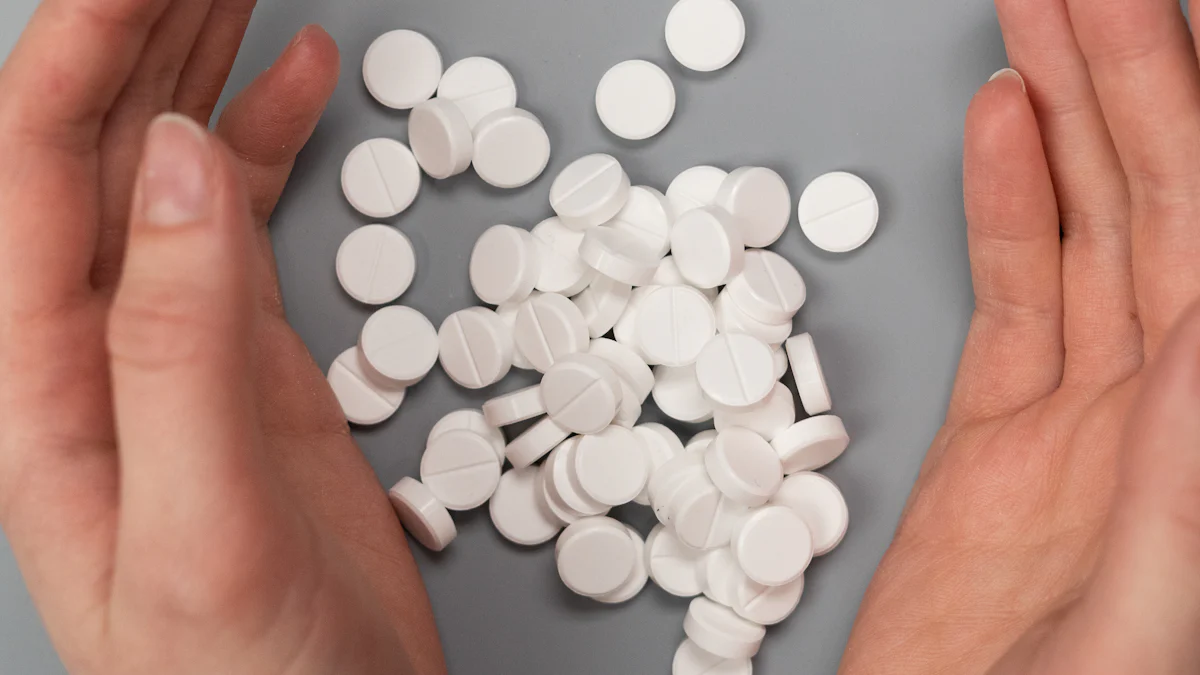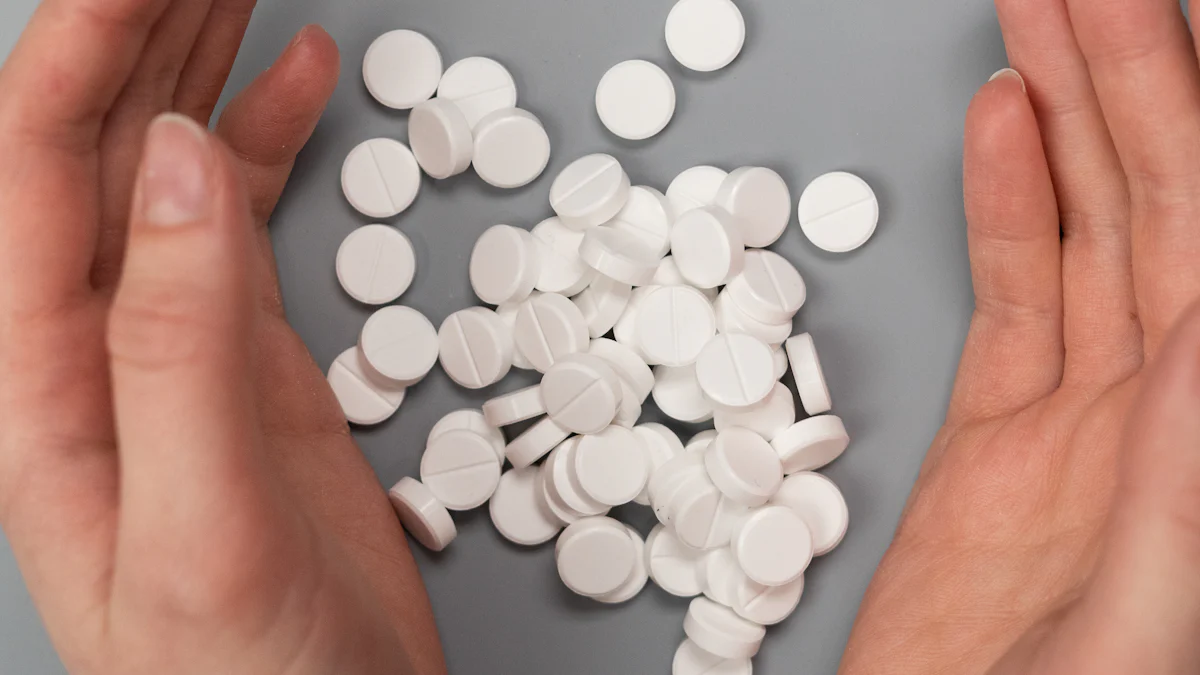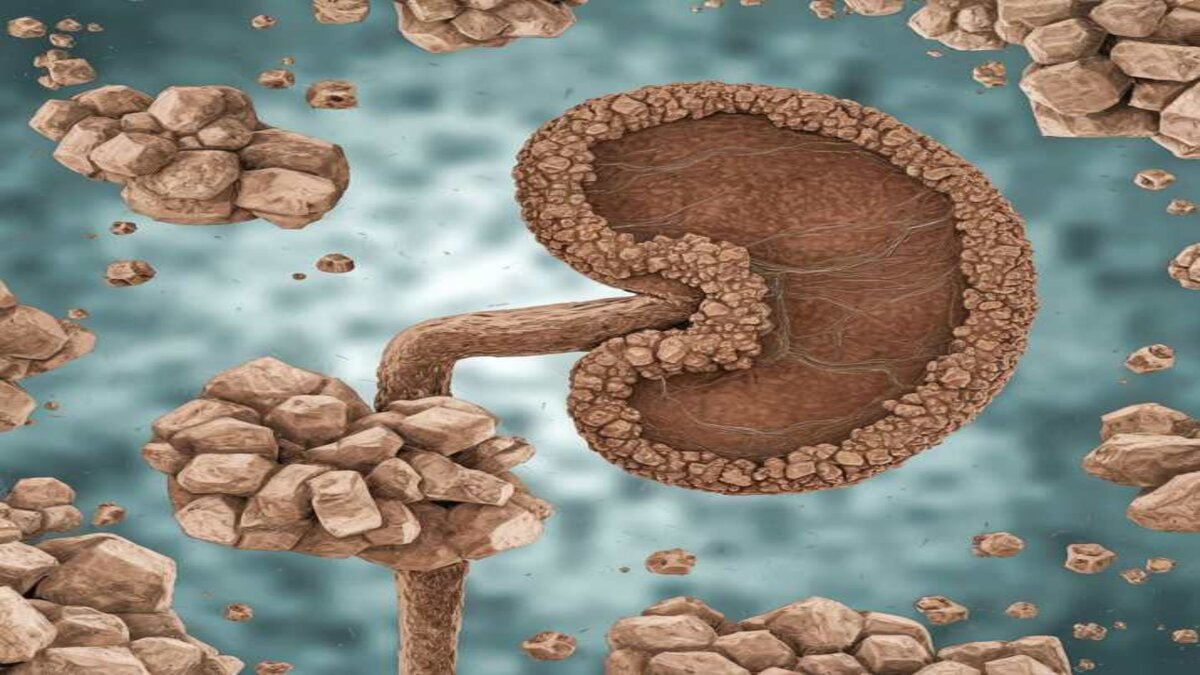Summary: D-mannose is a natural sugar that may help prevent urinary tract infections (UTIs) and kidney stones by inhibiting harmful bacteria from adhering to the urinary tract. Many individuals, particularly women, experience recurrent UTIs, with 40% having another within six months, and D-mannose offers a potential alternative to antibiotics, which ca
Summary: D-mannose is a natural sugar that may help prevent urinary tract infections (UTIs) and kidney stones by inhibiting harmful bacteria from adhering to the urinary tract. Many individuals, particularly women, experience recurrent UTIs, with 40% having another within six months, and D-mannose offers a potential alternative to antibiotics, which can contribute to resistance. While research shows promising results regarding D-mannose's ability to reduce bacterial stickiness, studies remain limited and mixed regarding its effectiveness for both UTIs and kidney stones.

D mannose kidney stones
D-mannose is a natural sugar that might help with UTIs and kidney stones. Many people experience UTIs, with 40% of women having another UTI within six months. In 36% of cases, kidney stones often occur alongside UTIs. Understanding how D-mannose works is important, as it could be a natural way to address these issues. This might reduce the likelihood of recurrent UTIs and assist with kidney stones. Learning about D-mannose can enhance strategies for managing these health concerns.
D Mannose and Kidney Stones
Learning about how D mannose affects kidney stones is useful. Many people have kidney stones, which hurt a lot. It’s interesting that D mannose might help here.
How D Mannose Helps with Kidney Stones
Stopping Stones from Forming
D mannose might stop kidney stones from forming. It helps by stopping some bacteria from sticking in the urinary tract. This can lower the chance of stones forming. By keeping the urinary tract clean, it may prevent minerals from building up into stones.
Easing Symptoms
For those with kidney stones, D mannose might ease symptoms. It could flush out bacteria and reduce swelling, making you feel better. This natural way might help without needing big treatments.
Studies on D Mannose and Kidney Stones
Research on D Mannose
Research on this is still new. Some studies say D mannose stops bacteria from sticking to bladder walls. This might help kidneys by reducing infections that cause stones.
Study Results
The study results look good so far. More research is needed, but early findings show D mannose could help manage kidney stones. By learning more, we can find new ways to keep kidneys healthy naturally.
Is D-mannose hard on the kidneys?
When thinking about D-mannose for kidney stones and UTIs, I wonder if it affects kidney health. Knowing risks is important to make smart choices.
Possible risks of D-mannose on kidneys
Effect on kidney function
It’s key to see how D-mannose might change kidney function. High doses could be harmful. Kidneys filter waste, so anything that changes this needs careful thought.
Checking kidney health
Checking kidney health means seeing how D-mannose works with kidneys. Some studies show few bad effects, but others say be careful, especially if you already have kidney problems. Regular check-ups with doctors can help.
Studies on D-mannose and kidney health
Study findings
Studies give ideas about how D-mannose affects kidneys. Some research shows mixed results in stopping UTIs. For example, some studies in the World Journal of Urology show benefits, but others in JAMA Internal Medicine don’t find big effects.
Looking at kidney effects
Looking at these studies helps me see what using D-mannose means. It seems helpful sometimes, but more proof is needed. More study will show its role in helping with kidney stones and keeping kidneys healthy.
D-mannose side effects
Learning about D-mannose side effects is important. It helps when thinking about it for kidney stones or UTIs. Many people feel better using D-mannose, but knowing possible bad reactions is smart.
Possible Bad Reactions
High Dose Risks
Taking too much D-mannose can be risky. Most people use it safely, but too much might cause problems. Some worry about how big doses affect them. It’s best to start small and see how you feel. Talk to a doctor for the right amount.
Effect on Kidneys
D-mannose can affect kidneys, so it’s worth checking. It helps with urinary health, but think about its impact on kidneys too. Some studies say high doses might stress kidneys, especially if you have kidney issues already. Regular check-ups with a doctor keep it safe.
Testimonials:
- Jack shared,“D-mannose helped me a lot since the burning sensation went away, and my frequent urges to urinate reduced significantly. I used a capsuled supplement from Nutraharmony. Unlike antibiotics, D-mannose offered relief without any adverse reactions. I would recommend it.”
- An iHerb customer mentioned,“So far so good. I’m always happy with NOW foods quality. This is the first time I’ve purchased (any) D-mannose, which I’ve bought for urinary health reasons. I haven’t had any obvious side effects, and the capsule size is easy to swallow & no taste from ingredients. So far I’ve been on it for 2 weeks. No UTI, so I’ll hope it keeps up the benefit. D-mannose is well known in the ISC community for reducing the chance of UTI.”
These stories show many like using D-mannose without big side effects. But everyone reacts differently to supplements. Knowing how D-mannose works with your body helps keep it safe.
Understanding D Mannose
Chemical Composition and Properties
Structure of D Mannose
D-mannose is a simple sugar like glucose. It acts differently in the body. It doesn’t absorb quickly, so it moves through the urinary tract.
How it Differs from Other Sugars
D-mannose is different from other sugars. It doesn’t raise blood sugar like glucose. This makes it safer for many people. It binds to bacteria, stopping them from sticking to bladder walls.
Mechanism of Action
How D Mannose Works in the Body
D-mannose targets harmful bacteria. It attaches to them and stops them from clinging inside the urinary tract. This helps flush out bacteria when you pee.
Interaction with Urinary Tract
D-mannose helps stop infections by preventing bacterial stickiness. Some studies say it might work better than some antibiotics for UTIs.
Key Insight: Early trials suggest D-mannose can stop bacteria from sticking to bladder walls, helping prevent UTIs.
Knowing these facts about D-mannose helps us make smart health choices.
D Mannose and UTIs

Learning about how D mannose helps with UTIs is useful. Many people get UTIs, which are uncomfortable. It’s interesting that D mannose might be a natural fix.
How It Works for UTIs
Stopping Bacteria
D mannose stops bacteria from sticking to the bladder. This helps wash away bad germs when you pee. By doing this, it lowers the chance of infection. I like how this sugar tackles the main cause of UTIs.
Comparing to Antibiotics
Antibiotics are often used for UTIs but can cause resistance. D mannose offers another way without these problems. While antibiotics kill germs, D mannose stops them from sticking, letting your body clear them out naturally.
Studies and Research
Key Studies Overview
Some studies looked at D mannose for treating and stopping UTIs. A 2016 study showed it might work well, but more research is needed. Trials suggest it may stop bacteria from sticking to bladder walls, cutting infection risk. But one UK study found no big difference compared to a placebo.
Understanding Results
The study results are mixed. Some show benefits; others don’t see much effect. This means we need more research to know for sure. Even with different results, many still choose D mannose as a natural UTI remedy because it might help prevent bacterial stickiness without just using antibiotics.
Can D-Mannose Help with UTIs?
D-mannose might help stop and prevent UTIs. Many people get UTIs often, which are painful and annoying. Knowing how D-mannose works could solve this problem.
How D-Mannose Works for UTIs
Stopping Infections
D-mannose helps by stopping germs from sticking in the bladder. This action washes away bad germs when you pee, lowering infection chances. Some studies say it might work better than some antibiotics like Nitrofurantoin to stop more UTIs. This shows its promise as a preventive tool.
Comparing with Regular Treatments
Looking at D-mannose next to regular treatments shows benefits. Antibiotics are common for UTIs but can cause resistance. D-mannose is a natural choice without that risk. It stops germs from sticking instead of killing them, letting your body clear them out naturally. This method may be better for those wanting a gentle option.
Studies on D-Mannose and UTIs
Key Research Findings
Some early studies in the U.S. and Europe looked at how well D-mannose works for UTIs. They show it stops bacteria from sticking to bladder walls, cutting infection risk. But not all agree; one study found it didn’t lower UTI recurrence much in women.
Understanding Study Results
Understanding these mixed results takes thought. Some studies show good things about D-mannose, while others don’t see big effects, like ones in JAMA. Despite this, many still pick D-mannose because it has few side effects and helps stop bacteria from sticking.
Why don’t doctors prescribe D-mannose for UTIs?
Not enough proof
Doctors are unsure about using D-mannose for UTIs. There’s not enough strong evidence. Many studies haven’t fully checked how well it works. A 2013 review article showed no clinical studies on stopping recurring UTIs with D-mannose. This lack of research makes it hard for doctors to suggest it confidently.
Limited research on how well it works
Research on D-mannose is still small. Some early trials say it might help with UTIs, but that’s not enough proof. Without big studies, it’s tough to see if D-mannose is better than other treatments. The JAMA study found daily D-mannose didn’t lower repeat UTIs in women more than a placebo did. This makes doctors careful about prescribing it.
Unsure treatment results
It’s unclear what happens when using D-mannose for UTIs. Without clear proof, it’s hard to know how patients will react. Doctors like treatments with proven results to keep patients safe and healthy. Until more research gives clear answers, D-mannose isn’t a top choice.
Possible risks and side effects
Doctors think about risks and side effects when choosing treatments. Like any supplement, D-mannose has some worries.
Worries about bad reactions
Some people have mild bad reactions to D-mannose, like bloating or loose stools. These aren’t serious but still important. High doses can be riskier and cause bigger problems. It’s important to consider these risks before widely recommending it.
Unclear effect on kidneys
The effect of D-mannose on kidneys isn’t clear yet. While it’s good for urinary health, high doses might stress the kidneys, especially in people with kidney issues already. Without clear safety evidence for kidneys, doctors stay cautious. Regular check-ups are key if someone uses D-mannose.
Comparing with Other Treatments
Looking at D-mannose next to other treatments helps us choose wisely. It’s interesting to see how safe and effective D-mannose is.
Benefits of D Mannose
Safe Use
D-mannose is gentle for treating UTIs. Unlike antibiotics, it doesn’t cause resistance. Many use it without big side effects, making it a safer natural choice. I like that D-mannose helps without the harshness of regular medicine.
Affordable Option
D-mannose costs less than many prescriptions. This makes it good for long-term use. Its low cost lets more people try it to stop UTIs from coming back. I think this is great because it’s budget-friendly and still works well.
Limits and Things to Think About
Possible Side Effects
D-mannose is mostly safe, but some might feel bloated or have loose stools. Start small and watch your body’s reaction. Talk to a doctor to stay safe, especially if you have health issues.
When It Might Not Work
D-mannose isn’t for everyone. Some studies say it doesn’t lower UTI chances much compared to a placebo. For bad infections, antibiotics might be needed. Knowing these limits helps us understand when D-mannose works best.
By comparing D-mannose with other treatments, we learn its role in handling UTIs and kidney stones. This knowledge helps us make smart health choices.
D-mannose could help with UTIs and kidney stones. It looks good for stopping and treating UTIs. A 2016 study showed this. For kidney stones, we need more studies, but early results are positive.

